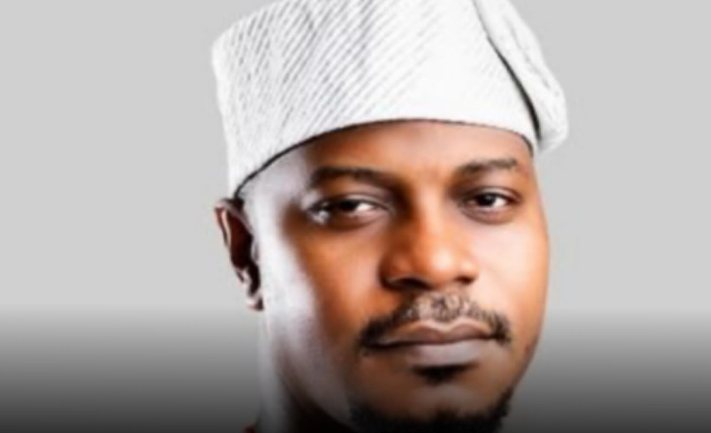
Terror Has No Faith: Senator Karimi Warns Against Politicising Insecurity as Nigeria Faces Rising Attacks

Senator Sunday Steve Karimi of Kogi West has issued a strong and sobering warning to Nigerians, insisting that the wave of insecurity sweeping across the nation has nothing to do with religion but everything to do with criminality, politics, and a dangerous manipulation of national narratives. Speaking during a private television programme, the senator declared unequivocally that “terrorists have no religion,” urging citizens to resist attempts by certain actors to twist the ongoing crisis into a religious confrontation.
Karimi’s comments come at a time when communities across the country—Muslim, Christian, and traditional—are grappling with increasingly frequent attacks, kidnappings, and brazen acts of violence. According to him, recent assaults on mosques in Zamfara and Katsina provide clear evidence that the terrorists currently destabilising Nigeria are indiscriminate in their targets. “When you see a terrorist walk into a mosque to kill worshippers, or attack a church, or kidnap students from schools with no regard for who they are, then it becomes obvious that these people answer to no faith and recognise no God,” he said.
His remarks reflect a growing concern among security analysts that some individuals—both within and outside Nigeria—are attempting to frame the country’s insecurity through religious lines to score political points or influence international opinion. Karimi described such attempts as “deliberate mischief,” designed not only to weaken Nigeria’s image globally but also to create distrust among its richly diverse population. He assured viewers that security agencies are already investigating these efforts and are committed to exposing those behind them.
Karimi further asserted that many of the recent events in the country appear to be engineered with political motives, adding that the pattern of attacks suggests a deliberate attempt to deepen instability for strategic gain. “What we are seeing is no longer just crime,” he stated. “It is an attempt to spread insecurity for political advantage, and Nigerians must be vigilant so they are not misled.”
To address the escalating crisis, the senator outlined several strategies being proposed at the national level, including a National Emergency and Security Act. This legislation, according to him, would mandate that five percent of Nigeria’s national revenue be directed toward funding security operations. He described the bill as a crucial step toward creating a stable and well-resourced security structure, one capable of adequately responding to threats in every corner of the country.
Karimi also stressed that no amount of federal intervention can succeed if local government administrations remain weak, dysfunctional, or undermined by corruption. He argued that the collapse of effective governance at the grassroots is one of the major contributors to insecurity. Local governments, which are closest to the people, should be functioning as engines of development, early-warning systems, and first responders. Instead, many of them are inactive, poorly funded, or politically stifled. “If local governments are not functional, then criminals have room to operate,” he said. “When local leaders cannot account for resources, cannot employ youth, cannot maintain basic services, insecurity thrives.”
He called for full local government autonomy as a way to prevent sabotage, deepen accountability, create jobs for young people, and ensure meaningful development reaches the communities where crime often begins.
In addition to supporting legislation and reforms, Senator Karimi revealed that he has personally invested in bolstering security in Kogi West and neighbouring areas. He detailed contributions that include establishing a forward operational base for security agencies, donating vehicles, providing gunboats for waterways, and equipping officers with bulletproof jackets and helmets. These interventions, he explained, are meant to complement federal efforts and ensure that communities in his constituency are not left vulnerable.
Karimi also shed light on the ongoing collaboration between the Senate and security agencies, particularly on the protection of schools in rural and semi-urban communities. With kidnappings and attacks on educational institutions becoming distressingly frequent, he said efforts are underway to deploy both police and military personnel to vulnerable schools to prevent further tragedies.
He added that President Bola Ahmed Tinubu has ordered the withdrawal of police and other security personnel from VIPs—a decision aimed at freeing up manpower for field operations. Karimi applauded the directive, stating that it is high time security forces returned to their primary duty of protecting the Nigerian people rather than serving the wealthy and politically connected. “The safety of citizens must take priority,” he emphasised.
When asked about the growing debate on whether Nigeria should embrace state policing, Karimi expressed openness to the idea, describing it as a potentially necessary step. He argued that several countries across the world operate effectively with both federal and state police structures, and Nigeria may need to follow this model if the federal police continue to be overwhelmed by the scale of insecurity. “State police may not be a perfect solution, but given our present reality, it is an option that deserves serious consideration,” he said.
The senator’s remarks echo the sentiments of many Nigerians who believe that the fight against insecurity requires not only better funding and stronger laws but also honesty, unity, and the rejection of divisive narratives. As communities across Nigeria mourn loved ones, flee their homes, or live in fear of the next attack, the message that “terrorists have no religion” serves as a critical reminder. The violence ravaging the country is not a battle between faiths but a crisis driven by those who profit from chaos and those who seek power through destabilisation.
Karimi urged Nigerians to remain united, warning that allowing religious or ethnic interpretations to overshadow the real issues would only empower the perpetrators of violence. He insisted that with the right political will, improved security funding, functional local governments, and cooperation across all levels of society, Nigeria can overcome the forces threatening its stability.
As insecurity continues to test the resilience of the nation, the senator’s message stands firm: the enemy is not one religion or another but the criminals exploiting Nigeria’s divisions. And until Nigerians unite against them, the cycle of violence risks continuing unchecked.


